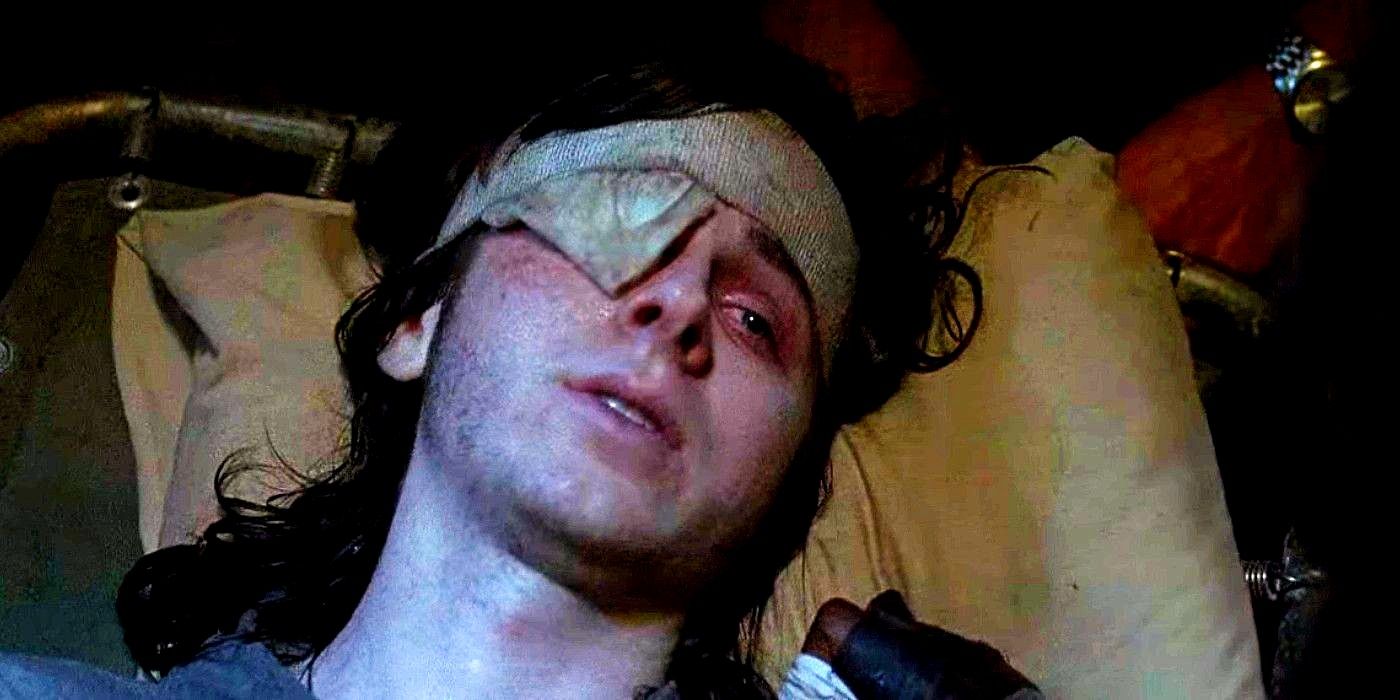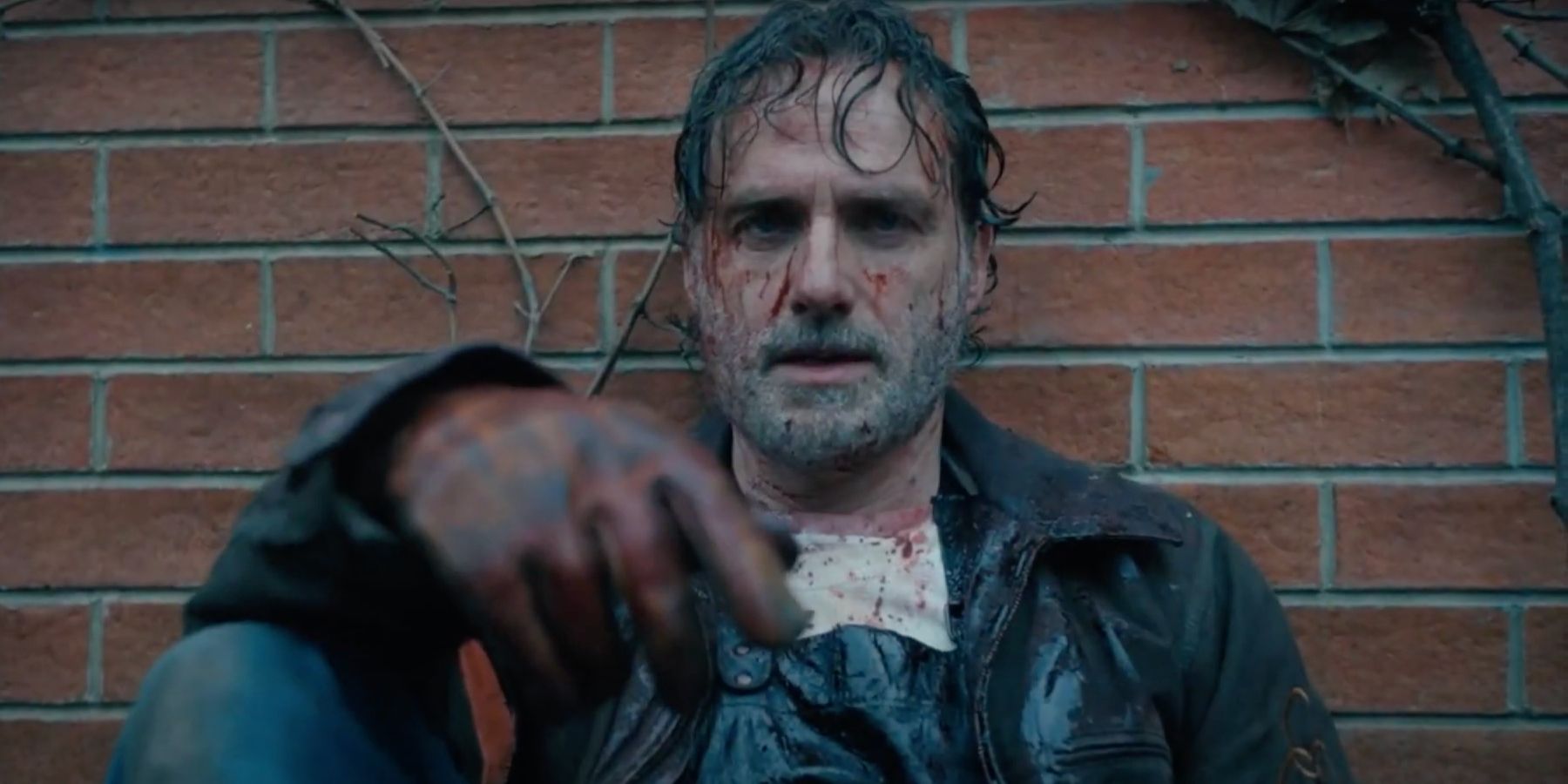Warning: Spoilers for Fear the Walking Dead season 8, episode 8
Six years later, Fear the Walking Dead has proven that the franchise has finally realized how badly it handled Carl Grimes’ death. AMC’s popular zombie show is no stranger to painful character deaths. In fact, some of the day-one and fan-favorite characters, like Glenn, were eventually killed off. Another core character death was when Carl, played by Chandler Riggs, experienced a walker bite in season 8. Although this was a devastating development with great emotional consequences in the series, the execution of the storyline had its fair share of issues.
Maggie’s story is an example of how the franchise has demonstrated the long-term impact associated with major character deaths. The main show used Maggie’s arc to highlight how the losses of her loved ones have influenced her life, made her stronger, and opened the door for new stories. For instance, a big part of The Walking Dead: Dead City’s story is her lingering animosity for Negan over the murder of Glenn. The direction taken with characters like Glenn stands in stark contrast to how it approached Carl’s death.
Rick’s Reaction To Carl’s Death In The Walking Dead Wasn’t Enough
The Walking Dead Doesn’t Explore Rick’s Grief Efficiently

Part of what made Carl’s death so impactful from an audience perspective is how it was revealed, including to Rick. This is because his walker bite is shown before audiences see how it happened. Rick is instantly devastated and visibly in shock when Carl shows him the bite. In a subsequent episode, heartwarming moments between Rick and Carl include the latter confessing how Rick’s acceptance of Woodbury residents during their time in the prison shaped him. This sets up Carl’s wish for a peaceful future for Rick and Alexandria. Additionally, Carl bravely choosing to shoot himself so Rick and Michonne don’t have to showcases the couple’s struggle juxtaposed with Carl’s acceptance of the situation.
Evidence of Rick’s grief is seen when he rereads Carl’s letter that calls back to happier times, as well as a flashback in which Rick recalls himself walking with a three-year-old Carl down a country road before the apocalypse. These instances ultimately convince Rick to spare Negan in favor of the peaceful Alexandria Carl envisioned. However, Rick seemingly doesn’t show any other major effects of losing Carl. Even in Rick’s final episode, he doesn’t hallucinate Carl when bleeding out, despite his goal to find his family. Although there’s no question whether Rick loved his son, The Walking Dead doesn’t utilize the extent of grief Rick must’ve felt when losing his only son (as far as he knows) throughout the season before his departure.
Fear Season 8’s Madison Story Proves How Badly TWD Handled Carl’s Death
Fear The Walking Dead Explores Nick’s And Alicia’s Deaths The Right Way
In Fear: The Walking Dead, Madison, who fake-dies in season 4, returns in season 7 and displays how losing a child can alter someone. Upon her return, audiences learn that Madison works for PADRE and kidnaps children because they promise her they can help find Nick (Frank Dillane) and Alicia (Alycia Debnam-Carey). This indicates that she’s been searching for her kids, one of her main motivations. Nick’s death is anti-climactic since he’s killed by Charlie who goes on to stay with his group and doesn’t face any real consequences. Luckily, Fear finally deals with season 4’s tragic forgotten death when Charlie confesses to Madison that she killed her son.
Madison experiences anger, pain, and guilt as she attacks walkers in a scene intercut with flashes of her and Nick. Additionally, she initially doesn’t care about what happens to Charlie despite being the one to bring her to the stadium in season 4. Instead, she fixates on the possibility that Nick could’ve lived and Alicia could’ve been there if Madison had “hit Troy harder,” highlighting how hopeless she feels. Fear explores Madison’s grief more efficiently than it did Rick’s in a fraction of the time even with only four episodes left in the series.
It’s Not Too Late For The Walking Dead To Fix Carl’s Death
The Walking Dead: The Ones Who Live Can Address Carl’s Death Better

While Rick honors Carl in a way that changes the course of The Walking Dead since Negan lives, it doesn’t sufficiently explore his grief conclusively, partially because of his early exit. Other characters had longer grief arcs that ultimately helped them develop, such as Sasha’s ruthless, sleepless soldier era after Bob dies. Luckily, there’s a perfect way to bring back Carl in Rick’s spinoff The Walking Dead: The Ones Who Live by focusing on grief since being separated from his family and home could incite grief-fueled or traumatic introspective moments, perhaps leading to visions of Carl that could create a mental strain for Rick.
Considering Rick almost lost Carl numerously, Carl’s final demise arguably deserves more of an impact for audiences to see. Additionally, Rick went through the trauma of almost having to chop his own son’s arm off when Negan first meets them. All their previously shared trauma receive an inadequate depiction of the effect of Carl’s death. With Alexandria shifting back to ruthlessly killing their enemies later, Carl’s death seems to fall by the wayside fairly quickly and is made to feel pointless. However, The Walking Dead can correct this as it did for Madison in Fear the Walking Dead by exploring any lasting effects of losing Carl in Rick’s spinoff.




